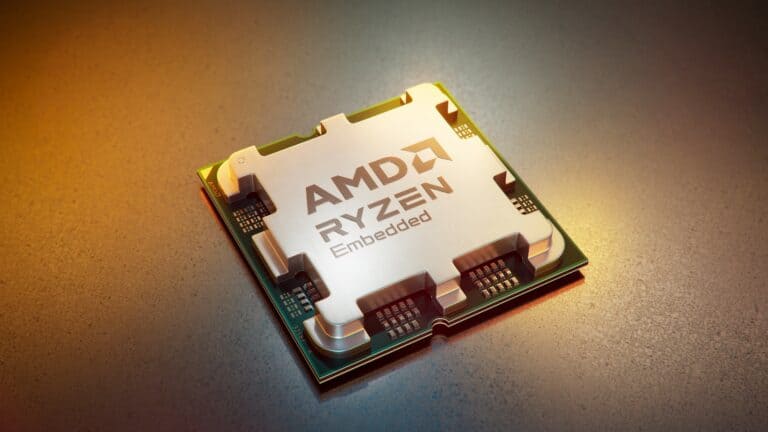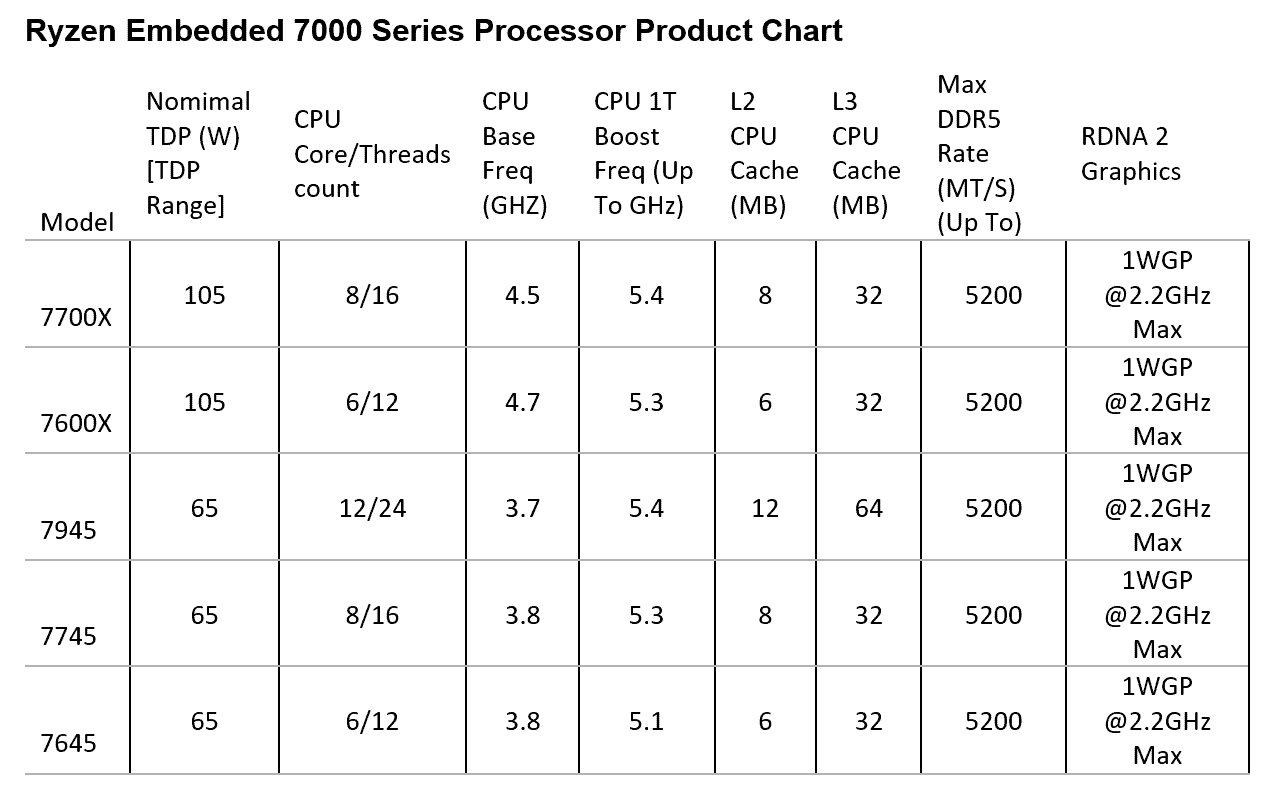Like other tech players, AMD has taken notice of the recent rise of connected devices, automation and AI. Upon its announcement today, it’s calling these three innovations the “industrial mega-trends”. They all require more computing power that must be quickly addressable. That’s the key motivation AMD brings to the table upon launching its latest Ryzen Embedded 7000 series, which now brings the Zen 4 architecture to the industrial sector.
All kinds of industry players, from car manufacturers to t-shirt printers, can optimize processes by analyzing their data. Real-time insights are preferable over latency-filled cloud-driven solution, bringing other advantages such as avoiding downtime through preventive maintenance. According to AMD, applications like this require more edge-compute than before, with the Ryzen Embedded 7000 chips as a scalable solution.
Seven years of production
AMD has been pushing Zen 4 to market through Ryzen 7000 series chips since 2022, both in server configs and for consumers. Now, it’s the turn of the embedded market, which tends to work with longer time cycles as the company highlights. AMD promises up front that the new 7000 chips will be built for seven years, making replacements readily available for a long time.
Looking at the specifications of the new embedded chips, it’s easy to spot the similarities to high-end consumer CPUs. The Ryzen 9 7945 even comes with 12 cores and 24 threads, which would exceed the capabilities of many workstations. Below is an overview of the new embedded offerings.
Applications
As mentioned, AMD hopes to accommodate “industrial mega-trends” with the new offerings. Clearly, the chips in question will be adequate in that regard for many applications. After all, Zen 4 is an efficient performer that fits well even with more extreme demands in the industrial sector. The company itself names robotics, machine vision and automation to point to some hardware-intensive tasks that the new chips can handle well. With an RDNA iGPU, AMD also opts for an included display output option so that measurements can be visually available on-site. There’s support for both Windows Server and Ubuntu, in addition to Windows 10 and 11.
“Industrial application use cases are continuing to grow in complexity and sophistication and are driving the need for increased processing capabilities,” said Rajneesh Gaur, senior vice president & general manager, Embedded Processors Group, AMD. “With the integration of key performance features and designed with the ability to scale, Ryzen Embedded 7000 Series processors are ideal for a broad range of applications from advanced robotics and instrumentation design to power control, video surveillance and more.”
AMD has announced it’s partnering with Advantech, ASRock and DFI to produce motherboards based on previously introduced chipsets (such as B650). At the SPS event in Nuremberg this week, the chips are already on display at the AMD booth, while production is currently underway.
Also read: AMD suggests its AI chip will make them $2 billion in a year

